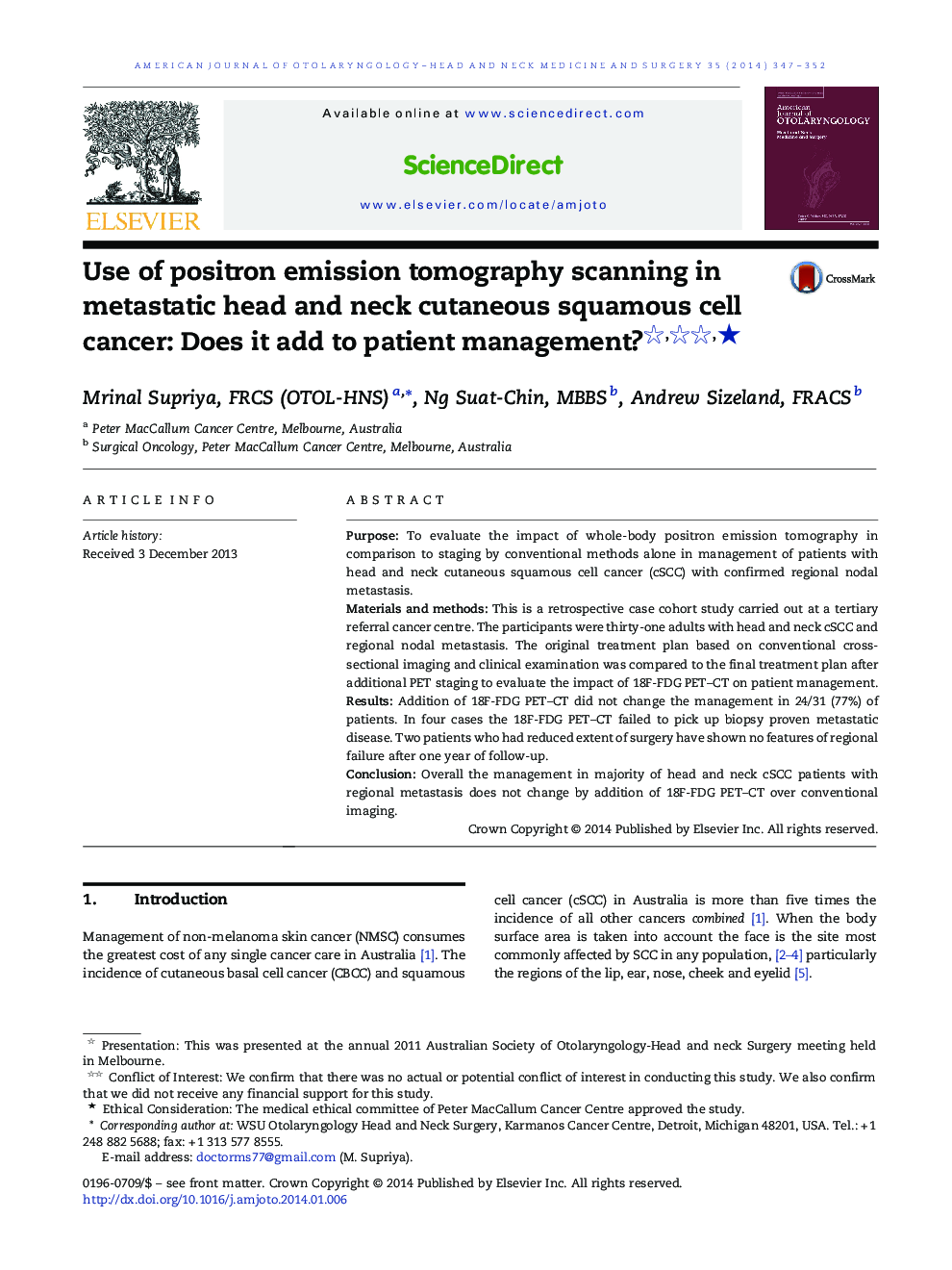| Article ID | Journal | Published Year | Pages | File Type |
|---|---|---|---|---|
| 4103240 | American Journal of Otolaryngology | 2014 | 6 Pages |
PurposeTo evaluate the impact of whole-body positron emission tomography in comparison to staging by conventional methods alone in management of patients with head and neck cutaneous squamous cell cancer (cSCC) with confirmed regional nodal metastasis.Materials and methodsThis is a retrospective case cohort study carried out at a tertiary referral cancer centre. The participants were thirty-one adults with head and neck cSCC and regional nodal metastasis. The original treatment plan based on conventional cross-sectional imaging and clinical examination was compared to the final treatment plan after additional PET staging to evaluate the impact of 18F-FDG PET–CT on patient management.ResultsAddition of 18F-FDG PET–CT did not change the management in 24/31 (77%) of patients. In four cases the 18F-FDG PET–CT failed to pick up biopsy proven metastatic disease. Two patients who had reduced extent of surgery have shown no features of regional failure after one year of follow-up.ConclusionOverall the management in majority of head and neck cSCC patients with regional metastasis does not change by addition of 18F-FDG PET–CT over conventional imaging.
